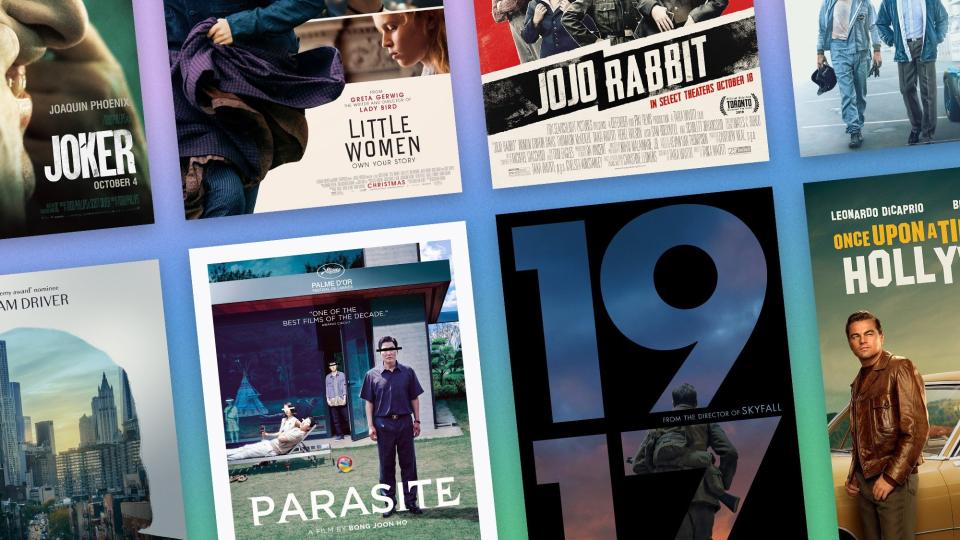Oscars 2020: Ford v Ferrari Should Win Best Picture
With just a few days to go until the 92nd Academy Awards, it’s an extremely tight (if also incredibly predictable) race for Best Picture. On one hand, there’s Parasite, Bong Joon-ho’s masterfully crafted social thriller that has garnered love from pretty much the entire world, even winning over those who would avoid subtitles in normal circumstances. The movie has been racking up accolades over the past few months, including a recent SAG Award for its ensemble (unprecedented for a film without individual acting nominations). Plus, everyone is infatuated with director Bong’s Big Dad Energy. A Best Picture win on its belt would make history.
On the other hand, there’s 1917: a gritty war film with immense Oscar pull thanks to director Sam Mendes (American Beauty) and cinematographer Roger Deakins (Blade Runner 2049). Made to look like it was shot in one take, it’s the kind of flashy technical achievement that can’t go ignored—and it sure hasn’t. Despite no one having seen it just a few months ago, it’s quickly become an almost unbeatable awards juggernaut. After its Best Picture win at the Golden Globes and similar success with the directors' and producers' guilds, statistics are on its side.
Bringing up the rear are films like Little Women, Joker, and Once Upon a Time in...Hollywood, which all have slim chances of winning but could certainly pull off an upset (stranger things have happened). As with almost every year, unfortunately, this awards season is extremely boring. The eventual winners are so predictable that they may as well have engraved the Oscar statuettes in December. It would take an Olivia Colman–level twist to dethrone Renée Zellweger and Joaquin Phoenix from their inevitable frontrunner positions. As much as I’m pleased that I’m definitely going to win my Oscar pool, I’d much rather be surprised.
I propose a solution: an Academy Awards Best Picture winner so chaotic that no one would ever see it coming. A Best Picture winner that would melt the brains of everyone in the Dolby Theatre and deliver a speech so bad it’s good, because the producers didn’t think they needed to prepare one. I am, of course, talking about Ford v Ferrari.
James Mangold’s crowd-pleasing sports film is a strange anomaly within the crop of nominees. It’s certainly a fine film—I had a great time watching it, even if it was a tad on the lengthy side.
The nominated films make grand statements about the state of the world and humanity, or are sweeping love letters to Hollywood … or they’re Joker. But Ford v Ferrari is just guys being dudes who love fast cars. It’s inoffensive and harmless, scrubbed clean of any rough bumps that could possibly make audiences hate it. It’s a one-size-fits-all kind of film that is almost universally liked by all but exceptional to no one.
Expectedly, Ford v Ferrari does tick a few Oscar bait boxes. It’s based on a true story (check) of the real-life friendship between sporting heroes (check), engineer Carroll Shelby and driver Ken Miles, played by Academy Award winning actors, Matt Damon and Christian Bale (check). The two are enlisted by Ford to build a race car fast enough to beat Ferrari in the Le Mans endurance race, ultimately beating insurmountable odds and the roadblocks of corporatism (CHECK). But compared to the other nominees, Ford v Ferrari has cruised into the awards conversation with old tricks. The Irishman mobilizes new technology to extraordinary results, Little Women makes a classic feel new, Marriage Story has Adam Driver yelling. If the Best Picture award speaks to the forward-thinking progression of the film industry, where does Ford v Ferrari fit into all of this? It does have one thing going for it: it hasn’t offended anyone—and that’s why it should win.
The biggest response a Best Picture win for Ford v Ferrari would elicit would be a “huh, really?” followed by a shrug. No one has any strong feelings about it, which means that if no one would exactly be ecstatic for it, no one would be angry about it. This awards season has been divisive, and speaking as someone who religiously follows it, people tend to choose their champion (#BongHive) and declare everything else as the enemy. Every film has its passionate fans—heck, even 1917 has stans—and that clearly-drawn division gets ugly. Save for perhaps the Christian Bale devotees, Ford v Ferrari doesn’t exactly have a passionate fanbase. It barely registers to the extent that an Oscar win would simultaneously offend everyone and no one. This could be the film that unites us all.
It’s not lost on me that Ford v Ferrari winning would be somewhat regressive. When five women have been nominated for Best Director in the Oscars’ 92 year history, it would probably be in poor taste to award the top prize to a film that relegates its one female character to a thankless wife role. It’s a movie dipped in nostalgia, living in a time long gone while the rest of the world has moved on. Is it the best film of 2019? Of course not. But when awards season is dictated by the size of the campaign budget, the best films rarely win. And anyway, who doesn’t love an underdog, or, you know, a Ford in a race full of Ferraris?
As the decade comes to a close, Kyle McGovern presents a ranking of the films that defined a tumultuous time for the Academy.
Originally Appeared on GQ


